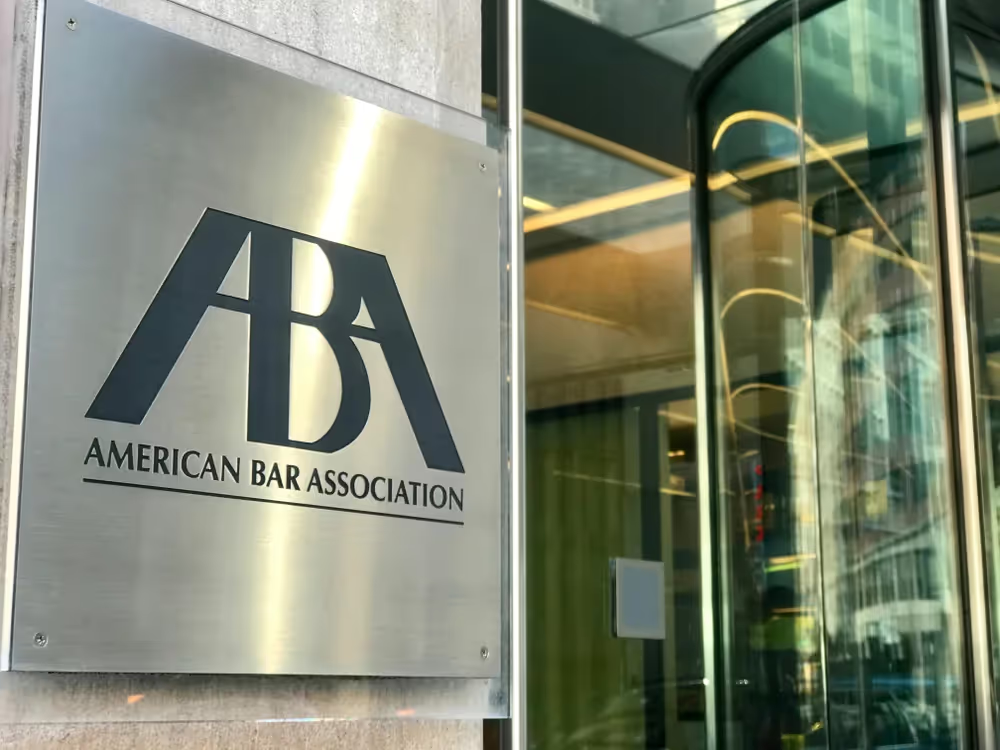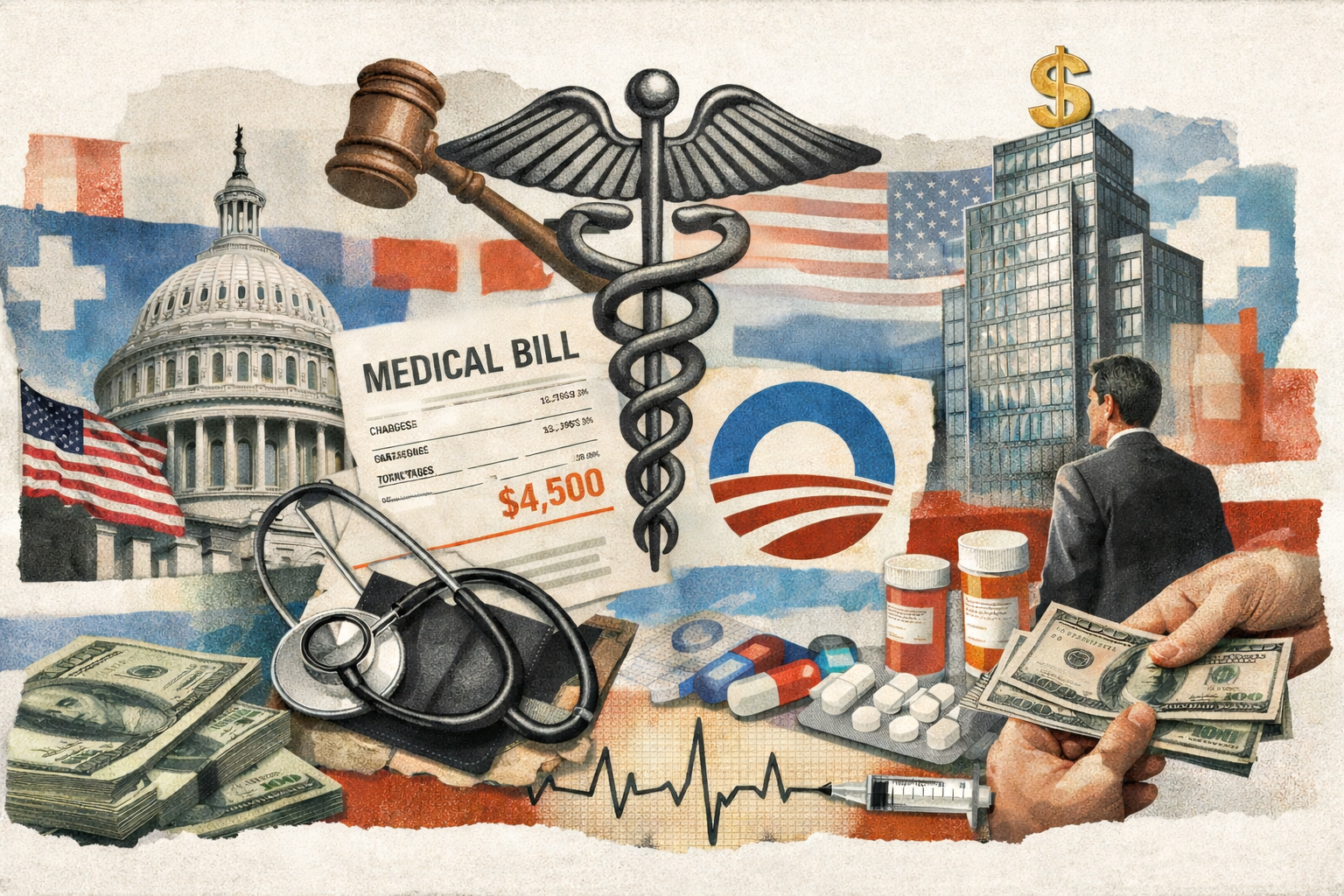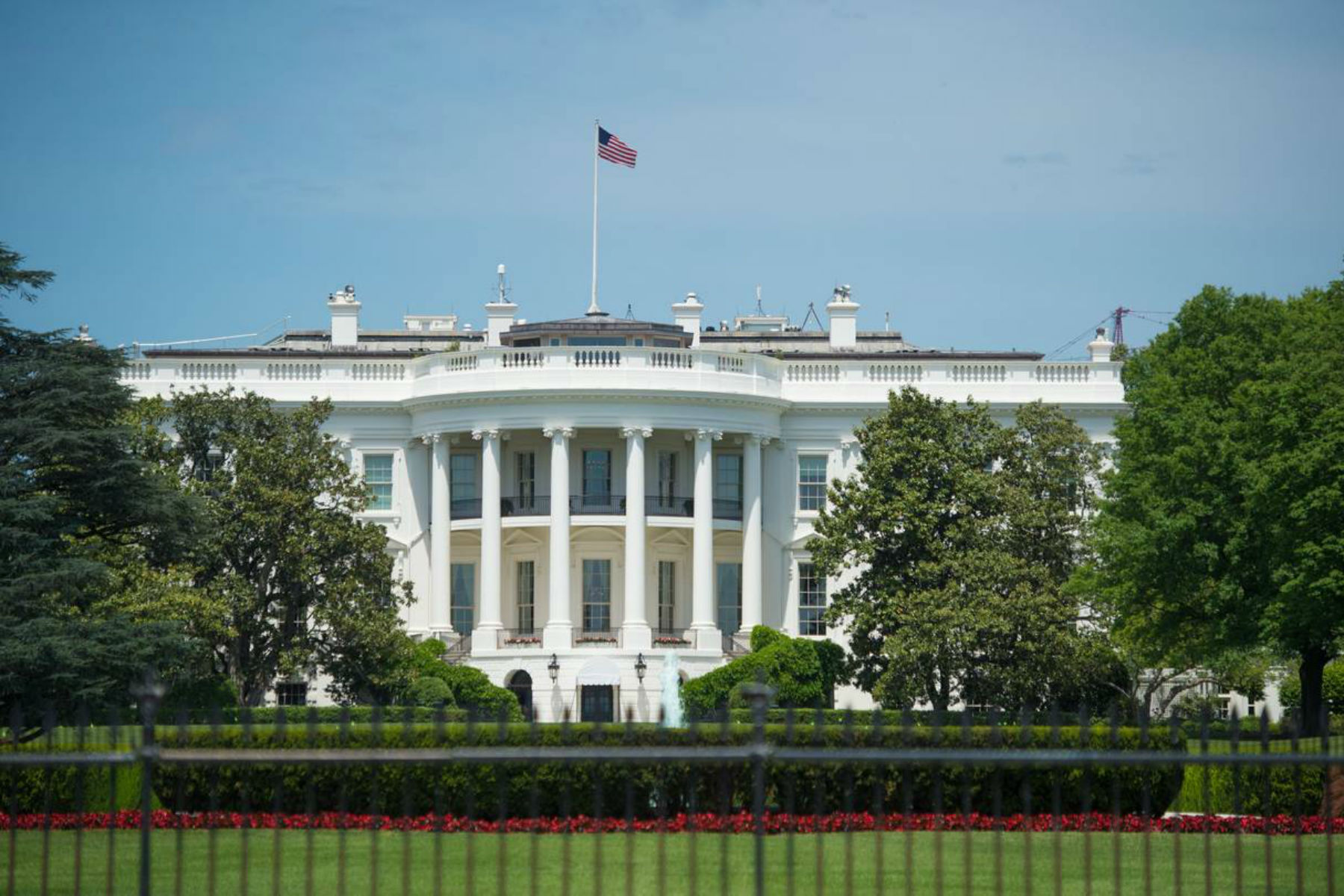
Is the ABA’s Accreditation Monopoly Coming to an End?
Many suspect that the ABA’s standards serve the interests and ideological leanings of the organization at the expense of the public and prospective students.
The American Bar Association (ABA) is the nation’s largest lawyers’ organization. While representing only a small fraction of lawyers, it is also the sole accrediting body for law schools. Whereas universities generally are accredited by regional accrediting organizations, the ABA’s Section of Legal Education and Admissions to the Bar is the only game in town. Federal student loans are only available to accredited institutions, and the vast majority of states require a degree from an ABA-accredited school to take the bar exam. Could this soon change?
As the cost of legal education continues to rise and technological changes threaten to transform the delivery of legal services, the ABA’s de facto monopoly on legal accreditation is under siege. Texas and Florida, the states with the third and fourth-most lawyers in the country, are both considering whether to stop requiring bar applicants to have attended an ABA-accredited school. At the same time, the Trump Administration is pushing to expand accreditation options. An April Executive Order directed the Department of Education to step up scrutiny of existing accrediting institutions while simultaneously expediting approval of new accreditors so as “to increase competition and accountability in promoting high-quality, high-value academic programs focused on student outcomes.”
One source of dissatisfaction with the ABA comes from the organization’s leftward political slant. Though purporting to represent the entire legal profession, the ABA has become a traditional liberal interest group, adopting positions and filing amicus briefs with the Supreme Court on a wide range of issues that have little to do with the practice of law. Though the ABA maintains that these policy-oriented activities are kept separate from the legal education section that oversees accreditation, the organization’s insistence on aligning itself with progressive causes has alienated it from many lawyers and jurists. In February, Federal Trade Commission Chairman Andrew Ferguson announced that FTC political appointees could no longer be involved in the ABA and that the FTC would no longer expend funds to facilitate participation in the organization or its events, citing the ABA’s “long history of leftist advocacy” as one of the reasons.
The ABA is under particular scrutiny for mandating that law schools consider race in admissions and faculty hiring decisions as a condition of accreditation. Under ABA Standard 206, law schools are required to “demonstrate” by “concrete action” their “commitment to diversity and inclusion” with a particular focus on providing opportunities for “racial and ethnic minorities” in admissions and “having a faculty and staff that are diverse concerning gender, race, and ethnicity.” That complying with such a standard may conflict with applicable state or federal law does not matter, according to the ABA, which has declared that any law that “purports to prohibit consideration of gender, race, ethnicity, or national origin in admissions of employment decisions is not a justification for the school’s non-compliance.”
The ABA’s defenders may argue that this requirement does not necessarily require categorizing and evaluating applicants by race, but that is precisely how the standard has been interpreted and enforced for years. As Daniel Rodriguez, former Dean of the Northwestern Law School has explained, “counting the number of faculty and students from diverse racial and ethnic backgrounds has become a de facto requirement” as “the practice for teams evaluating law schools and submitting reports to the accreditation bodies of the ABA, not to mention specific questions on the ABA’s omnibus questionnaire, have focused squarely on numbers.”
Following the U.S. Supreme Court's confirmation that considering race in university admissions is contrary to both federal law and the Constitution in Students for Fair Admissions v. Harvard University, the ABA considered revising Standard 206 but has been unable to reach a consensus on new language. This perceived intransigence has angered federal and state officials. In February, Attorney General Pam Bondi wrote the ABA that its longstanding policy of encouraging “unlawful race and sex discrimination under the guise of ‘diversity’ mandates . . . must be repealed immediately.” Similarly, twenty-one state attorneys general wrote the ABA calling for revisions because Standard 206 “cannot lawfully be implemented.” In response, the ABA has suspended Standard 206 through August 2026, but it remains on the books, creating the impression that the ABA is seeking to wait out the current political moment.
The ABA’s embrace of diversity is often framed in terms of increasing access to the legal profession and legal services. Yet, if inclusion and accessibility were truly the ABA’s primary concerns, it would allow for greater innovation in the provision of legal education, enabling schools to experiment with ways to improve outcomes while reducing costs. However, that has not been the ABA’s approach. Rather, the ABA’s monopoly on law school accreditation has had many of the consequences one would expect. It has adopted standards that have increased the costs and reduced the availability of legal education, thereby reducing the supply of legal services and increasing student loan burdens
In theory, accreditation could serve as a means of consumer protection, helping ensure students do not waste money on fly-by-night operations and graduate capable of passing the bar and serving clients. Yet it is not clear that ABA accreditation has ever actually served that purpose. Just as the medical profession has sought to limit the number of medical school spots to constrain the supply of doctors, the history of legal accreditation suggests that the ABA became involved to advance the financial interests of existing lawyers.
Whether the ABA sees itself as a cartel today, much of its accreditation behavior aligns with what a self-interested cartel would do. Accordingly, many of the ABA’s accreditation requirements focus on costly inputs, such as the number of books in the library or the number of full-time, tenured faculty, that have no demonstrated relationship to a student’s ability to pass the bar or become an effective lawyer. These requirements, however, have helped inflate the cost of obtaining a law degree and stifled innovation in legal education.
Indeed, despite external criticism and increased concern about student debt, the ABA has continued to increase the number of requirements schools must adopt, particularly about experiential education, without engaging in any meaningful study or examination of the effects. At present, the ABA is considering a proposal to double the amount of experiential coursework all students must take to graduate, from six credit hours to twelve credit hours, while simultaneously constraining how law schools meet the requirement (such as by prohibiting law schools from offering eligible coursework in the first year).
It is possible that requiring more experiential education will help law students serve their future clients, at least in some areas of the law. Yet the ABA has never quantified the benefits of its pre-existing six-credit-hour requirement, let alone sought to weigh the trade-offs involved. Experiential education, particularly if provided through legal clinics, is often more expensive than traditional coursework. Requiring all students to take more experiential courses necessarily also means less time for traditional, subject-matter oriented coursework. Again, this trade-off may make sense for some students, but the ABA has failed to meaningfully study the question.
Instead of adopting a one-size-fits-all experiential requirement, it would make more sense for the ABA to allow different schools to adopt different approaches to experiential and traditional doctrinal education. I have taught at a school with a twelve-hour experiential education requirement, and it works well for our students; however, this is hardly the only way to provide a legal education. Allowing competition and innovation in the development and delivery of legal education is preferable to mandating standardization across all law schools nationwide. As AI and other technological advancements accelerate, the need for innovation and experimentation will only increase; yet, the ABA is doing little to facilitate such changes.
Not every standard adopted by the ABA has been a problem. In February 2024, the ABA adopted Standard 208 on academic freedom and freedom of expression. This requires all law schools, public and private, to respect the academic freedom of faculty and students and, perhaps more significantly, to adopt First-Amendment-level protections of free expression on campus, while simultaneously barring “disruptive conduct that hinders free expression.” Such an embrace of open expression would be welcome on many campuses, but is the occasional positive accreditation standard worth the costs of the ABA’s monopoly?
As noted above, Texas and Florida are reviewing whether to maintain the requirement that bar applicants graduate from an ABA-accredited school. But what is the alternative? California allows graduates of non-ABA-accredited law schools to take the bar, but there are relatively few such schools in other states. A more radical option is to restore the practice of allowing prospective lawyers to study for the bar while working instead of attending school, combined with increased disclosure requirements for law schools so that prospective students can evaluate their options more fully. And if the current bar exam is not a meaningful test of competency to practice law, perhaps revising the test is preferable to maintaining the ABA’s monopoly. Another path would be for states to develop their own standards for law school accreditation, at least as an alternative to the ABA, perhaps focusing on demonstrated outcomes. If even a few states did this, there would be pressure on others to follow, or at least consider accepting accreditation from other states.
If the ABA’s accreditation standards serve their purposes of ensuring quality legal education and protecting consumers, it should welcome competition. If current accreditation standards produce better lawyers, the organization should have nothing to fear. But if, as many suspect, the ABA’s standards have served the interests and ideological leanings of the organization, at the expense of the public and prospective students, then some degree of competitive pressure could foster a needed course correction. The ABA did not always accredit law schools, and there is no reason it should continue to do so forever.
Jonathan H. Adler is the inaugural Johan Verheij Memorial Professor of Law and Director of the Coleman P. Burke Center for Environmental Law at the Case Western Reserve University School of Law.
Politics

National Civitas Institute Poll: Americans are Anxious and Frustrated, Creating a Challenging Environment for Leaders
The poll reveals a deeply pessimistic American electorate, with a majority convinced the nation is on the wrong track.
.webp)
Liberal Democracy Reexamined: Leo Strauss on Alexis de Tocqueville
This article explores Leo Strauss’s thoughts on Alexis de Tocqueville in his 1954 “Natural Right” course transcript.
%20(1).avif)
Long Distance Migration as a Two-Step Sorting Process: The Resettlement of Californians in Texas
Here we press the question of whether the well-documented stream of migrants relocating from California to Texas has been sufficient to alter the political complexion of the destination state.
%20(3).avif)
Who's That Knocking? A Study of the Strategic Choices Facing Large-Scale Grassroots Canvassing Efforts
Although there is a consensus that personalized forms of campaign outreach are more likely to be effective at either mobilizing or even persuading voters, there remains uncertainty about how campaigns should implement get-out-the-vote (GOTV) programs, especially at a truly expansive scale.

California’s Green Policies Destroy Blue-Collar Jobs
The problem here lies not with racism, or lack of reparations, as Newsom and “progressives” insist, but with their own policies, which devastate minority communities.

There's a Perception Gap With the U.S. Economy
As we approach another election cycle, it’s worth asking: what’s real, what’s political theater, and what does it all mean if Democrats regain control of the House?

The Not-So Reckless Attack on Iran
The Iranian government does not have either the leadership or the resources to mount any sustained military response to the forces arrayed against it.

The Healthcare Symposium
We’ve asked James Capretta, Sally Pipes, and Avik Roy to opine on the future of healthcare policy in America.



.avif)






.jpg)


